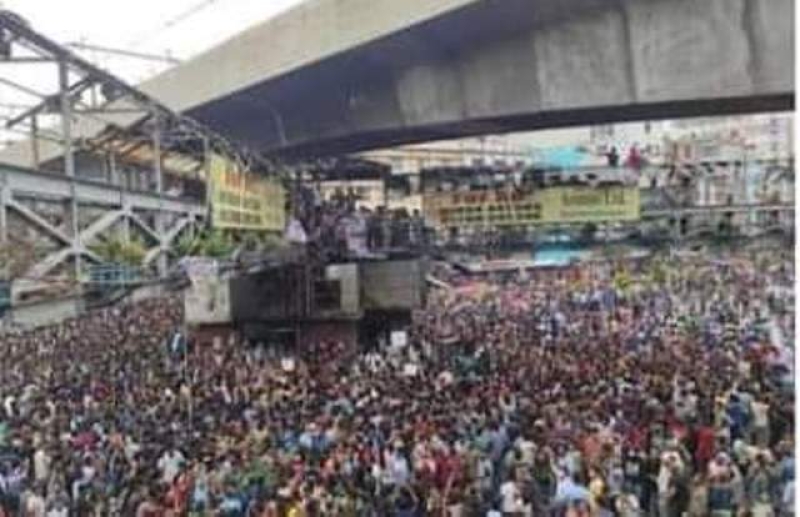- Stocks end week sharply lower as DSE, CSE indices tumble |
- 'Not all collections in the road transport sector is extortion': Sk Rabiul |
- Zubaida, Zaima take iftar with orphan students |
- Dhaka ranks second among world’s most polluted cities Friday |
- Dhaka to maintain ties with all countries with dignity |
Student Movement: Need for Restraint and Action

Students demo at Mirpur 10 on Saturday. FB_IMG_1722753691731
Bangladesh has witnessed a surge in student activism, particularly surrounding issues of discrimination and social justice. The antidiscrimination student movement has emerged as a powerful force demanding an end to systemic inequalities in recruitment to government jobs that have plagued the nation for decades. However, this movement has also faced a strong resistance, resulting in tragic clashes that led to the loss of hundreds of lives. As the situation escalates, it is imperative for the government to exercise restraint and engage constructively with the students to address their legitimate demands.
The antidiscrimination student movement in Bangladesh is rooted in a long history of social injustice and inequality. Students from various backgrounds have come together to challenge discriminatory practices like reserving 56 percent of jobs for offspring of freedom fighters and some backward communities. This movement has gained momentum, fueled by a growing awareness of the need for equality and justice in a rapidly changing society.
Students have organized protests, rallies, and awareness campaigns, using social media to amplify their voices and connect with like-minded people. Their demands range from policy changes to reforms, aiming to create a more inclusive and equitable society. The movement has also highlighted issues such as police excesses, corruption, and the need for greater accountability from government institutions.
Despite the peaceful intentions of the student movement, the response from authorities has often been heavy-handed. Reports of violence against protesters, arbitrary arrests, and excessive use of force have emerged, leading to tragic losses of life. The deaths of hundreds of students and activists have sparked outrage and grief across the nation, raising urgent questions about the government's commitment to protecting its citizens' rights.
The crackdown on peaceful protests has not only resulted in loss of life. This cycle of violence threatens to stifle the voices of those advocating for change, undermining the very principles of democracy and human rights that the country aspires to uphold.
In light of the escalating violence and loss of life, it is crucial for the Bangladeshi government to exercise restraint. The use of force against students and activists only serves to deepen divisions and exacerbate tensions within society. Instead of responding with aggression, the government should prioritize dialogue and engagement with the student movement.
The government must recognize that the demands of the students are not merely grievances but reflections of deep-seated issues that require urgent attention. By listening to the voices of the youth and addressing their concerns, the government can help foster a more inclusive and harmonious society. This approach not only aligns with democratic principles but also contributes to the long-term stability and prosperity.

